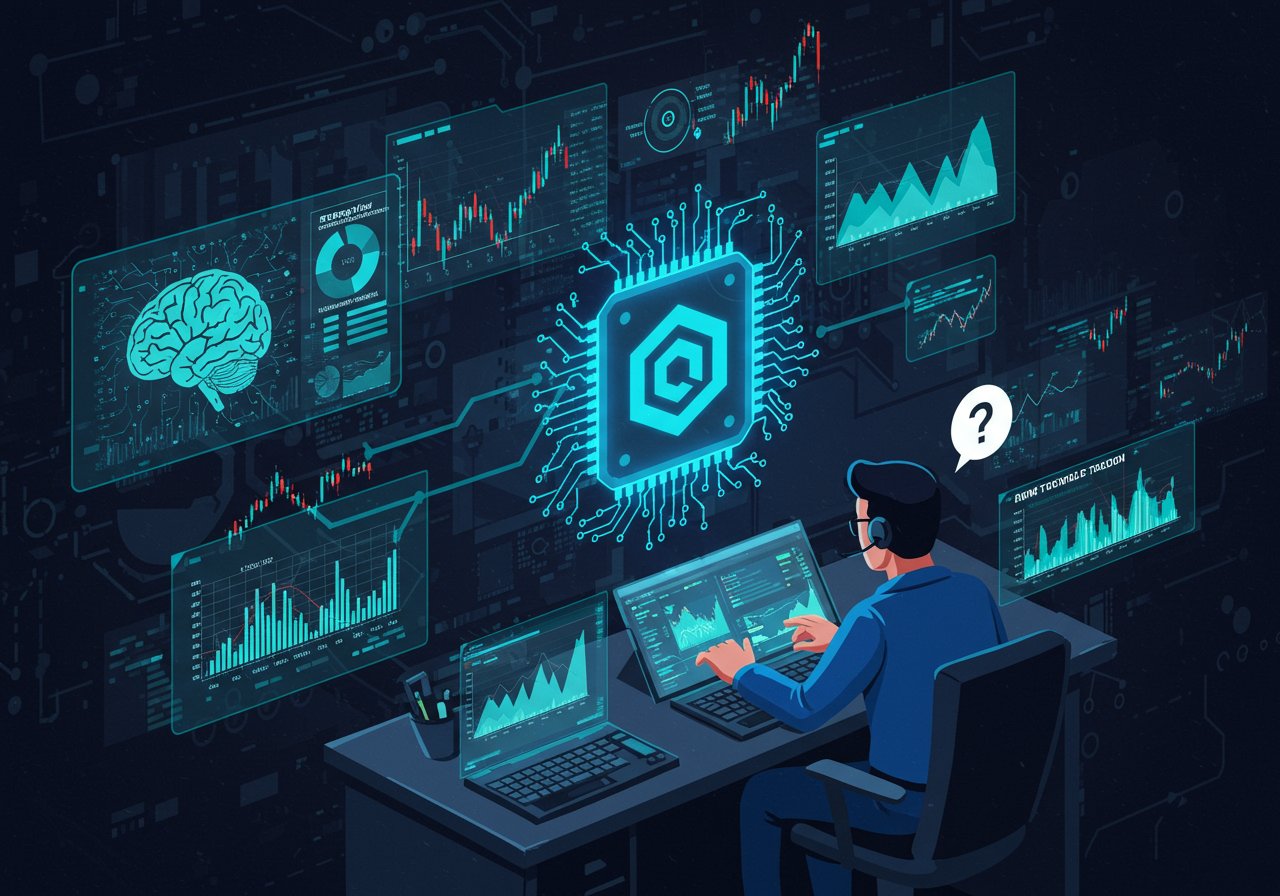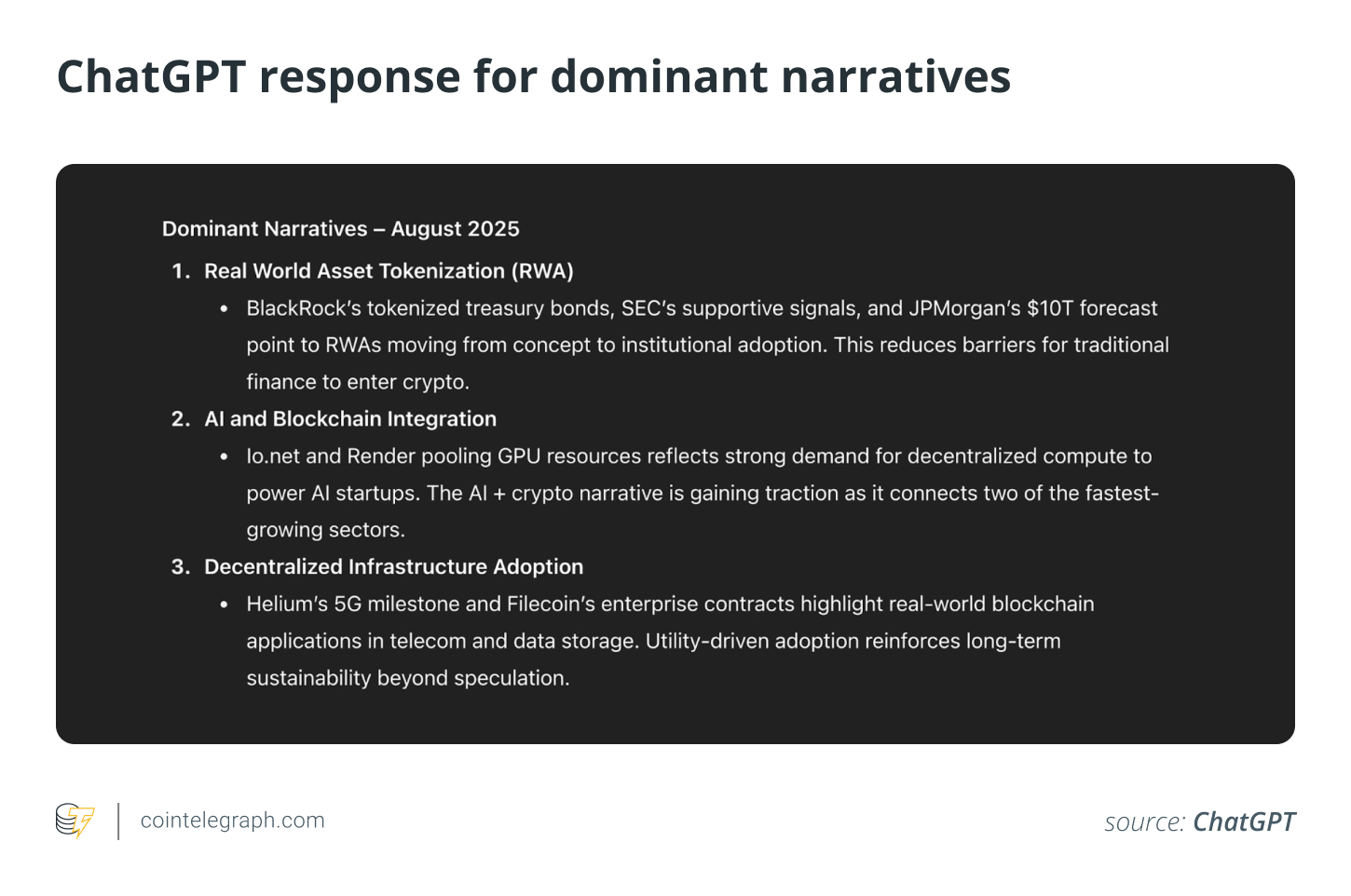
Unlocking Crypto Insights: ChatGPT as Your Trading Assistant
The cryptocurrency market’s relentless pace and complexity pose a significant challenge for traders. With a constant influx of data – news, social media chatter, on-chain metrics, and technical charts – discerning actionable signals from the noise is a monumental task. Fortunately, artificial intelligence, specifically large language models (LLMs) like ChatGPT, is emerging as a valuable tool to navigate this landscape. This article delves into how you can integrate ChatGPT into your crypto trading workflow, transforming it from a novelty into an analytical co-pilot.
The Power of AI in Crypto: More Than Just Hype
Before diving in, it’s crucial to understand ChatGPT‘s role in financial analysis. It is not a replacement for human decision-making, nor does it offer investment advice. Instead, it acts as a powerful data processor and interpreter, amplifying the user’s ability to process information. The quality of ChatGPT‘s output is directly proportional to the quality, accuracy, and timeliness of the data fed into it. Therefore, becoming a proficient data gatherer is paramount.
Building Your ChatGPT-Powered Trading Toolkit
A robust setup consists of three key components:
- Price Data: Essential – platforms like TradingView offer real-time price action, volume data, and technical indicators.
- Narrative Sources: Crypto markets thrive on narratives. Utilize trusted news sources and terminals to stay updated on regulatory shifts, technological advancements, and partnerships.
- Fundamental Data: Tools like Glassnode, Nansen, or Santiment provide invaluable on-chain insights, including exchange flows, whale activity, and network growth metrics.
Armed with these tools, you’re prepared to feed ChatGPT the high-quality information it needs for effective analysis.

Step-by-Step: Generating Trading Signals with ChatGPT
This systematic approach guides you from a broad market overview to a specific trading strategy:

Step 1: Identify the Dominant Market Narrative
The crypto market often moves in waves, following the most compelling narratives. Leverage ChatGPT to identify current trends. Feed it news headlines and summaries from trusted sources and prompt it to identify 2-3 dominant narratives. For each narrative, ask it to explain its traction. This focused approach prevents traders from getting lost in the sea of tokens.

Step 2: Gauge Market Sentiment
Once you have a narrative and a potential asset (e.g., Fetch.ai’s FET), your next step is to gauge the real-time sentiment surrounding it. After finding news headlines or social media posts, provide summaries to ChatGPT. Ask it to classify the sentiment as Bullish, Bearish, or Neutral and identify the primary catalysts and concerns being discussed. This provides context to price movements, adding conviction or highlighting potential risks.

Step 3: Interpret Technical Data
Use ChatGPT as a technical analysis textbook. Input the objective data from your charting platform, specifying the timeframe and key indicators (e.g., price action, volume, RSI, moving averages). Request a neutral interpretation. ChatGPT can then explain what this combination of indicators suggests in a market context. It will help to spot continuation or a fakeout.

Step 4: Synthesize a Trade Thesis
Bring it all together. Combine your findings from the narrative, sentiment, and technical analyses. Input this information into ChatGPT, and request it to create a comprehensive, objective trade thesis. Structure the output into sections: the bullish case, potential risks, and an invalidation thesis. This structured approach facilitates monitoring, without offering financial advice.
The process offers a systematic approach to integrate high-level market narratives with asset-specific data and technical analysis. Ultimately, the user retains responsibility for verifying data, assessing risks, and executing trades. By following a human-led, AI-assisted workflow, you can foster a more disciplined approach to crypto market analysis. Remember, the information provided is not financial advice, and all trading involves risks. Always conduct your own research before making investment decisions.


